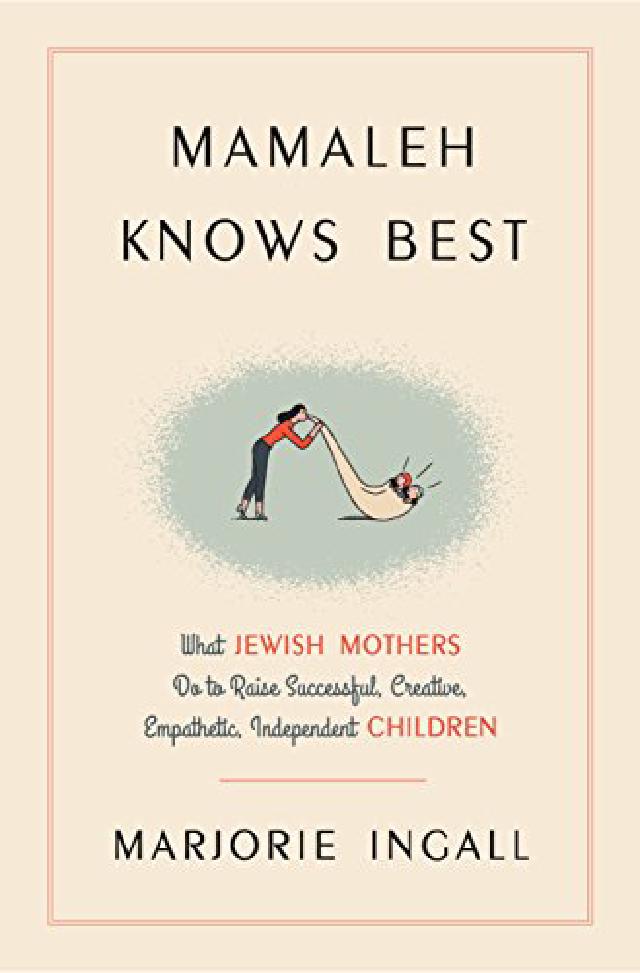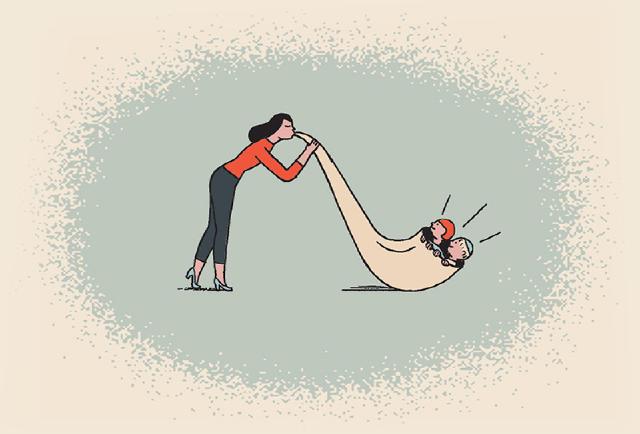
“Mothers have power."
Ingall emphasizes the value of the role, “Women tend to be more religious than men (which is why Judaism, a largely home-based faith, has been not only practiced but also transmitted by women). Women are much more likely to go to religious services than men. And because mothers tend to be in charge of kids’ schedules, women are the ones who ensure that religious education takes place.”
I love that Ingall emphasizes the feeling of community in the Jewish Faith: “our prayers are written overwhelmingly in the first person plural, not the first person singular.” Ah, yes!
I appreciated her reminders to nurture curiosity in my children: “Judaism teaches us to stress the importance of asking questions rather than giving answers.” This is an essential skill in parenting, for sure. Ingall is delightfully vulnerable about her life experiences:
“I did not know, as a small child, that bad things happened to people who weren’t Jewish.”
I love the honesty!
Ingall’s perspective was refreshing:
“As I’ve said before, we’re entirely too worried about having our kids be happy. Stop saying and even thinking ‘the most important thing is that they’re happy right now.’ (We’re Jews. Happy is not our default state.) Too much worry about making your kid happy each moment leads to too little work on helping your kid develop the skills to be fulfilled for the rest of their life.”
Happiness is not an isolated event that happens one day; happiness happens because our character is strong enough to support the experience.
Discipline
One of the themes I most enjoyed was Ingall’s comments on discipline.
“Discipline is about teaching a kid to avoid temptation and wait and work toward better rewards.”
Her definitions are succinct and clear. “’Discipline’ means both correcting misbehavior and conveying expectations for good behavior. … But discipline has a third meaning, too: It means self-regulation, self-discipline, self-government. It isn’t something impressed upon you by an authority figure; it’s something that comes from within, something you tap into when you’re trying to achieve a goal.” I wouldn’t have thought of this combination of definitions, so I really liked this.
“Keep telling yourself that to teach a kid discipline, you need discipline yourself.”
She widens the discussion with Hebrew words:
“The Hebrew word for sin is chet, which is literally an archery term for ‘missing the mark.’ Discipline is a learned skill—like archery—in which practice helps us get closer and closer to the bull’s-eye. There’s a story about the German Jewish theologian Franz Rosenzweig: When he was asked if he did certain mitzvot (commandments, the plural of “mitzvah”), he never answered no. He always said, “Not yet.” And he was a theologian!”
Jewish Jokes
Her sense of humor kept me laughing: “Incidentally, it is possible to simultaneously be annoyed by a device and to appreciate that it has made life better. If you are annoyed by your child’s use of a device during family time, divest your child of the phone during family time. This is not rocket science. Incidentally, Jews have received fifty Nobel Prizes in physics, which is practically a Nobel in rocket science since there is no actual Nobel in rocket science.”
She analyzed the sterotypes of the Jewish Mother, and talked about the hidden truths. As she did, she shared a few Jewish Mother jokes:
Q. What did the waiter ask the table of Jewish mothers? A. Is ANYTHING all right?
A Jewish mother is walking down the street with her two little sons. A passerby says, “Oh, they’re so cute! How old are they?” The Jewish mother responds, “The doctor is three and the lawyer is two.”
Q. Why do Jewish mothers make great parole officers? A. They never let anyone finish a sentence.
Read it!
Like the books of Chaim Potok, her writing made me feel even greater respect for the Jewish faith. I appreciate the way she described her culture and her faith and how she reconciles the challenges of the secular world. Mostly, her book felt like a conversation with a friend, a friend who understands exactly what you are dealing with. I highly recommend Marjorie Ingall’s book, “Mamaleh Knows Best.”
